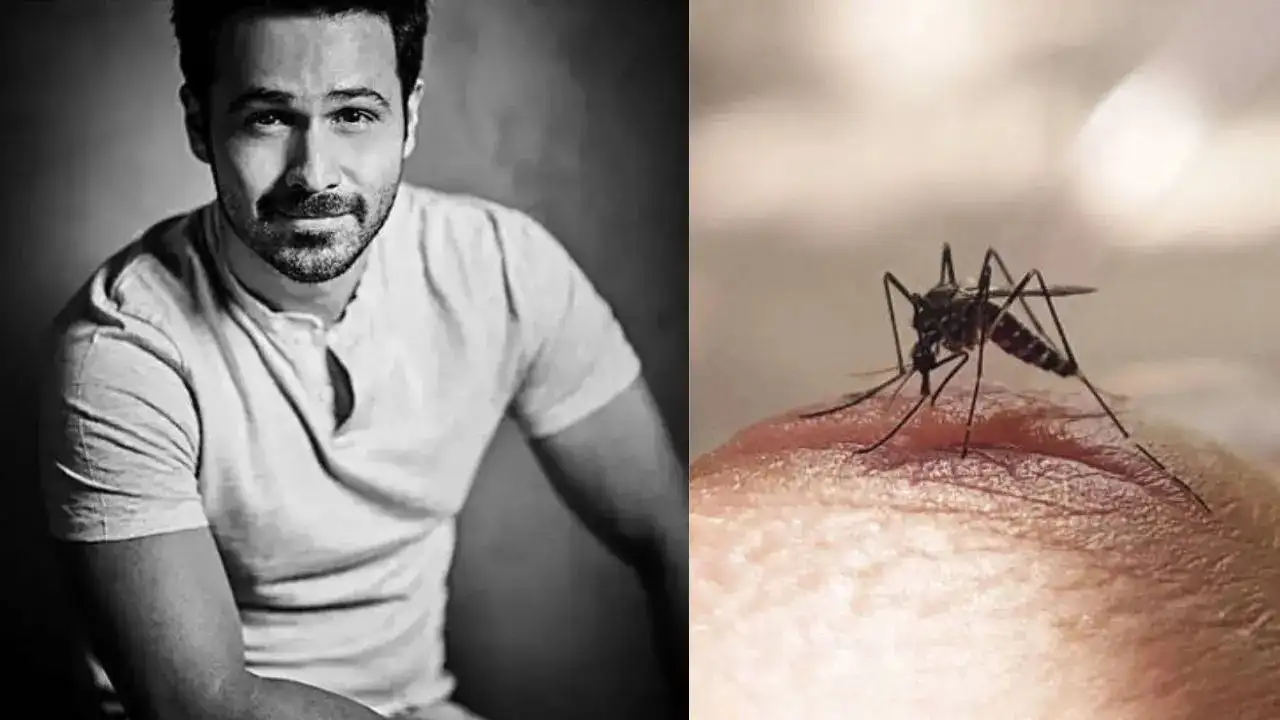
Dengue is an illness you can get from the bite of a mosquito carrying one of four types of dengue virus (Pic: Instagram/iStock)
Emraan Hashmi has been diagnosed with dengue while shooting for a new movie in Mumbai. According to news reports, the actor began experiencing symptoms during a shoot in Goregaon, an area known for its dense vegetation and high mosquito population. Following medical consultation and tests, doctors confirmed the diagnosis, and he has been advised to rest for at least a week.
At present, he is recuperating at home and is expected to resume shooting once he receives medical clearance.
What is dengue fever?
Dengue is an illness you can get from the bite of a mosquito carrying one of four types of dengue virus. Doctors say the virus is most commonly found in tropical and subtropical regions, including Central and South America, Africa, parts of Asia, and the Pacific Islands.
While dengue is not contagious from person to person except when passed from a pregnant woman to their child, the symptoms can be usually mild. However, if you get the infection again with a different version of DENV, your risk of severe complications goes up.
According to studies, around 400 million people get infected with dengue every year, but around 80 per cent have no symptoms.
Signs and symptoms of dengue fever
While most dengue infections do not cause symptoms, if you do have a few, they may be:
- Rashes
- Intense pain behind your eyes
- Nausea or vomiting
- Muscle, bone and joint pain
-
Stomach pain
-
Nose bleeds
Dengue fever symptoms start to appear four to 10 days after a mosquito bite and can last three to seven days. About 1 in 20 people sick with dengue will develop severe dengue after their initial symptoms begin to fade. Severe dengue is a life-threatening worsening of dengue symptoms. Warning signs of severe dengue are usually seen 24 to 48 hours after your fever goes away.
How to protect yourself from the risk of dengue fever?
The best way to reduce your risk of dengue fever is to protect yourself from mosquito bites, which you can do by:
- Using EPA-registered insect repellents that contain 20 to 30 per cent DEET
- Cover exposed skin outdoors, especially at night when mosquitoes are more likely to be around
- Removing standing water and filling low spots where water can pool
- Keeping mosquitoes outside of your home by repairing holes in screens and keeping windows and doors closed if possible
- Using mosquito netting at night in areas where dengue is common
- When travelling, be sure to check with the CDC to understand if there are any outbreaks of illness in your destination before you leave.
